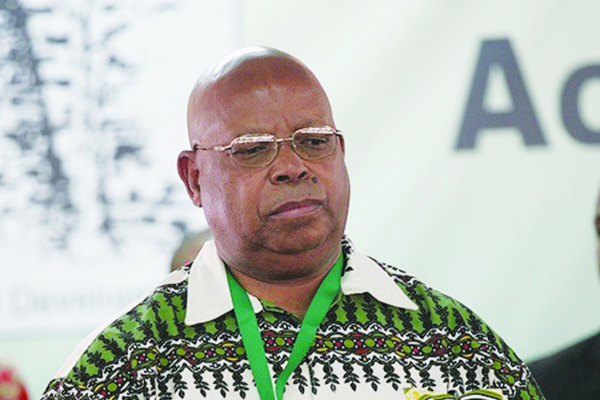
BY Harriet Chikandiwa
SPEAKER of the National Assembly Jacob Mudenda has said a passport is a human right and not a privilege because it affords people the right to movement as enshrined in the Constitution.
Mudenda made the remarks while officiating at the launch of the national inquiry on access to documentation hosted by the Zimbabwe Human Rights Commission (ZHRC) in Harare on Wednesday.
Mudenda said the denial of primary rights which anchor on self-identify of individuals should never be attenuated through the lack of access to fundamental rights.
“A person without a birth certificate and an identity card is Stateless, and worse still, has no claim of citizenship inclusive of the attendant rights, one becomes unwittingly a foreigner in the land of birth,” Mudenda said.
“This is unwarranted, dehumanising, an injury to one’s wellbeing and ego. Relatedly, a passport is a right not a privilege. It is a right that affirms the concomitant right to freedom of movement and residency as provided for in the Constitution.”
Mudenda’s remarks came at a time people in Matabeleland and Midlands region have engaged government over identity documents, claiming most of them were unable to obtain the documents after losing their parents to the Gukurahundi massacres of 1980s.
“Citizenship is a constitutional entitlement which bottles access to a passport in respect to the right of movement and residency,” Mudenda said.
- Chamisa under fire over US$120K donation
- Mavhunga puts DeMbare into Chibuku quarterfinals
- Pension funds bet on Cabora Bassa oilfields
- Councils defy govt fire tender directive
Keep Reading
“Accordingly, it is axiomatic that access to personal national documentation is a fundamental human right and a form of a solid foundation for the enjoyment of many other interrelated rights.”
He said following the Gukurahundi disturbances in the Matabeleland and Midlands provinces, many of the victims could not access birth and death certificates from the Registrar-General’s Office, resulting in generations of undocumented persons who could not fully enjoy their rights and freedoms.
He said there was need to raise awareness on the underlying issues that cause challenges in accessing documentation, with a view to initiating discussion on the need for legislative and policy reforms.
“The cause of the challenge should stimulate practical solutions to cure the mischief of inaccess to personal identity documents.”
ZHRC chairperson Elasto Mugwadi said the challenges were an eye-opener to the effects of lack of access to identity documents.
“The findings in the report are an eye-opener to the various challenges that confront people in accessing national documentation and negative impact that lack of access to identity documents has on their lives.”
“Lack of a birth certificate results in far-reaching consequences and shuts doors to life opportunities, it impedes enjoyment of fundamental human rights and freedoms,” Mugwadi said.
He said an urgent response was needed to address the identified challenges so that the plight of people failing to enjoy human rights due to lack of documentation can be resolved or minimised.











